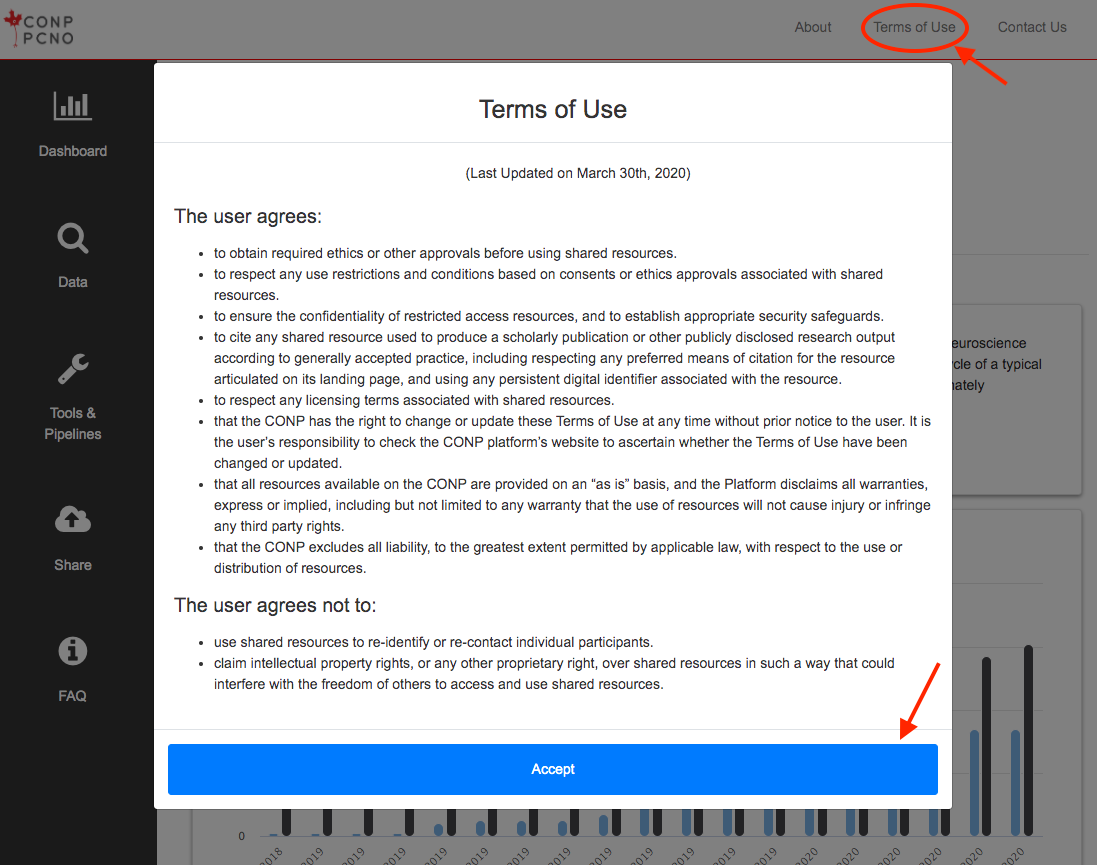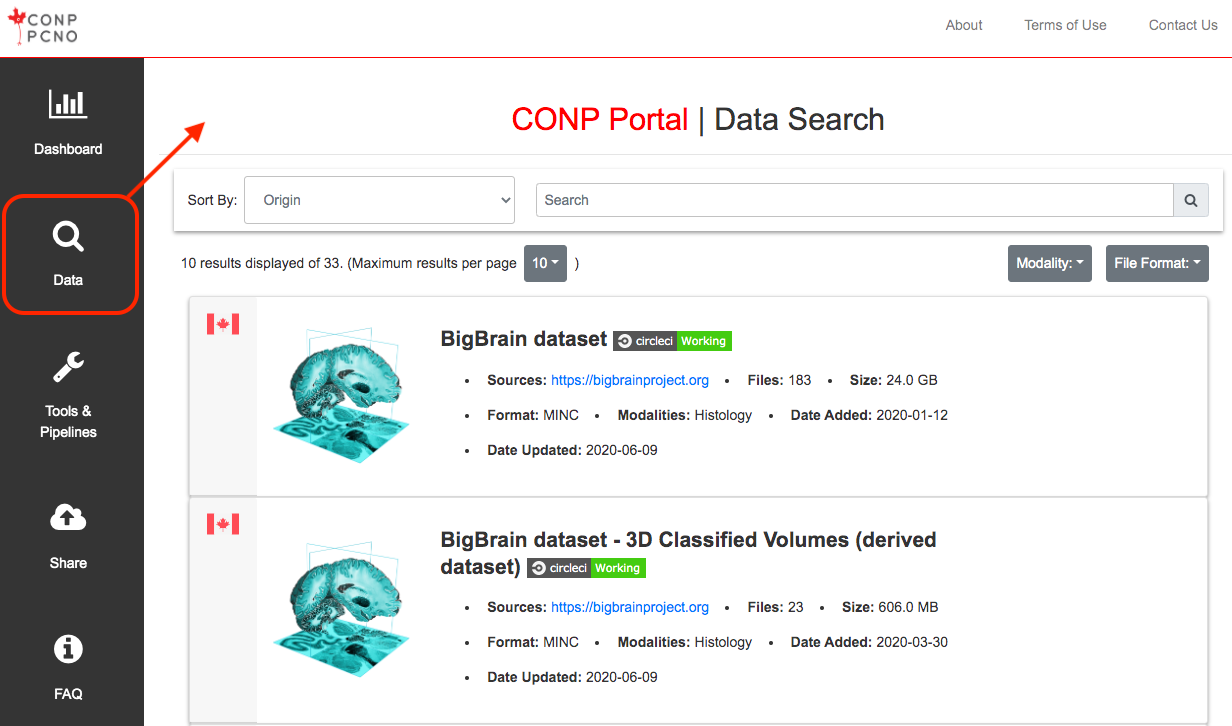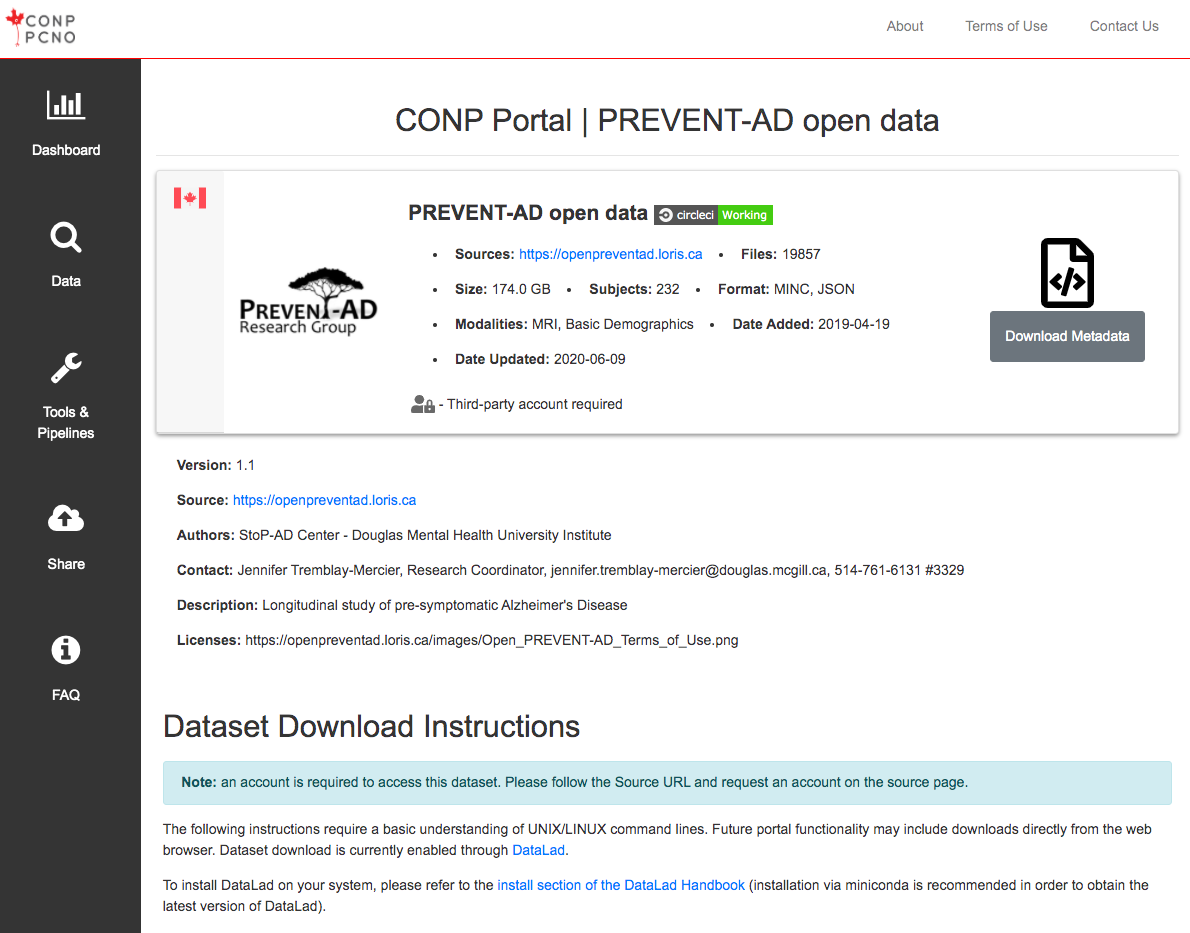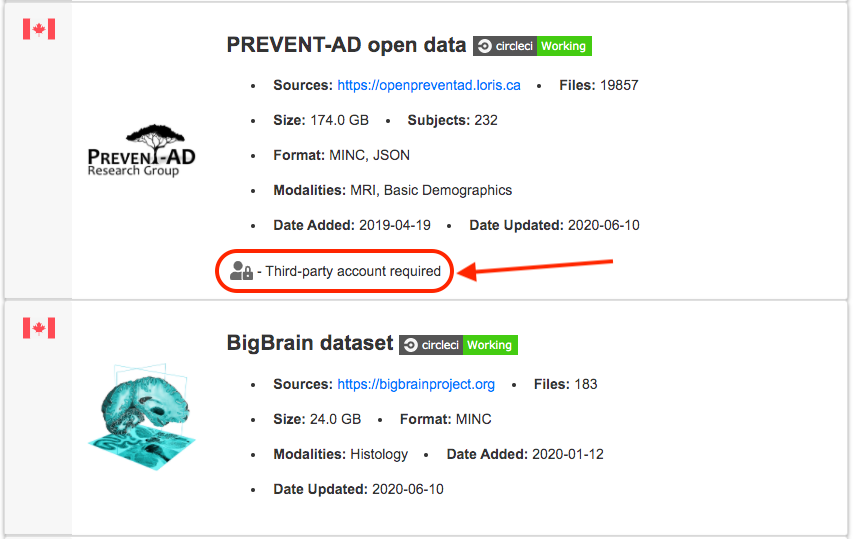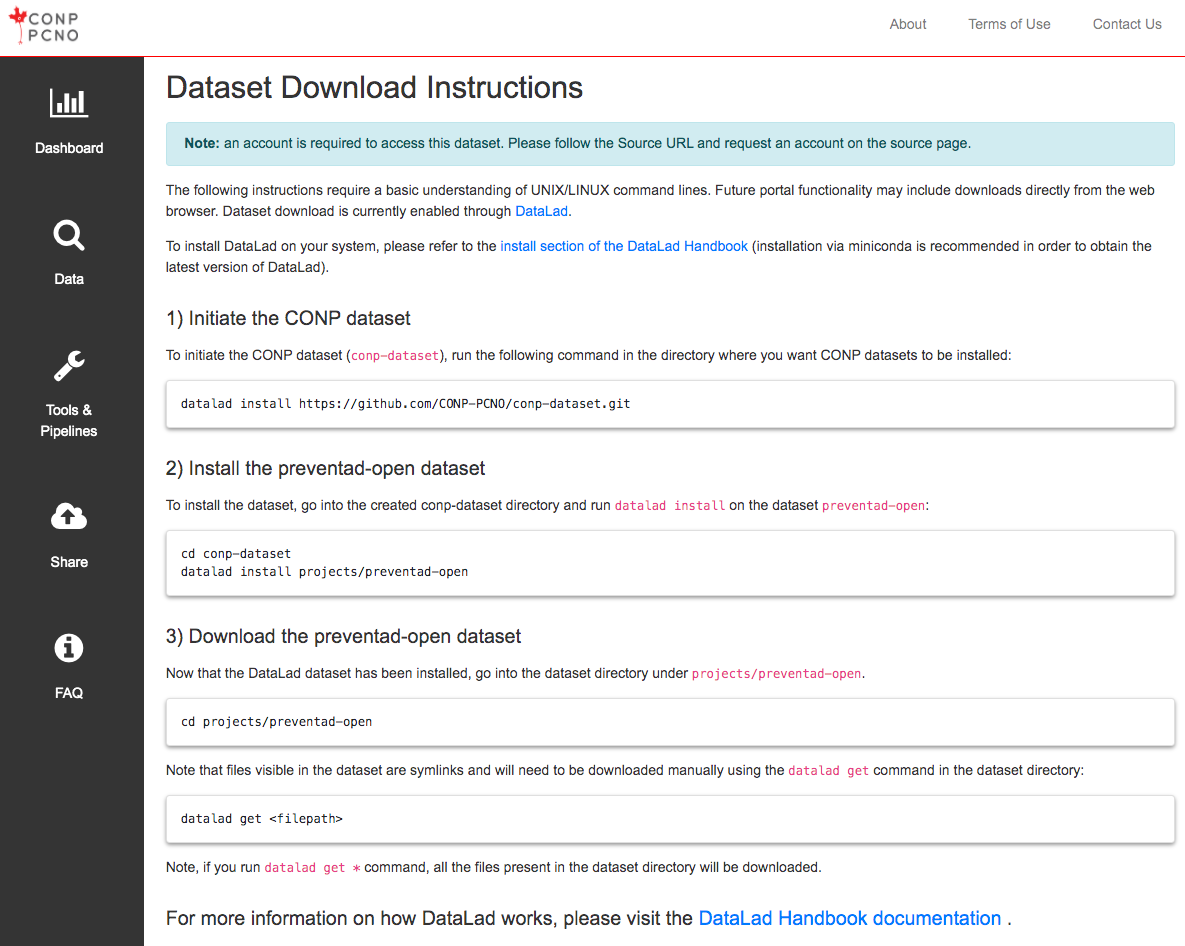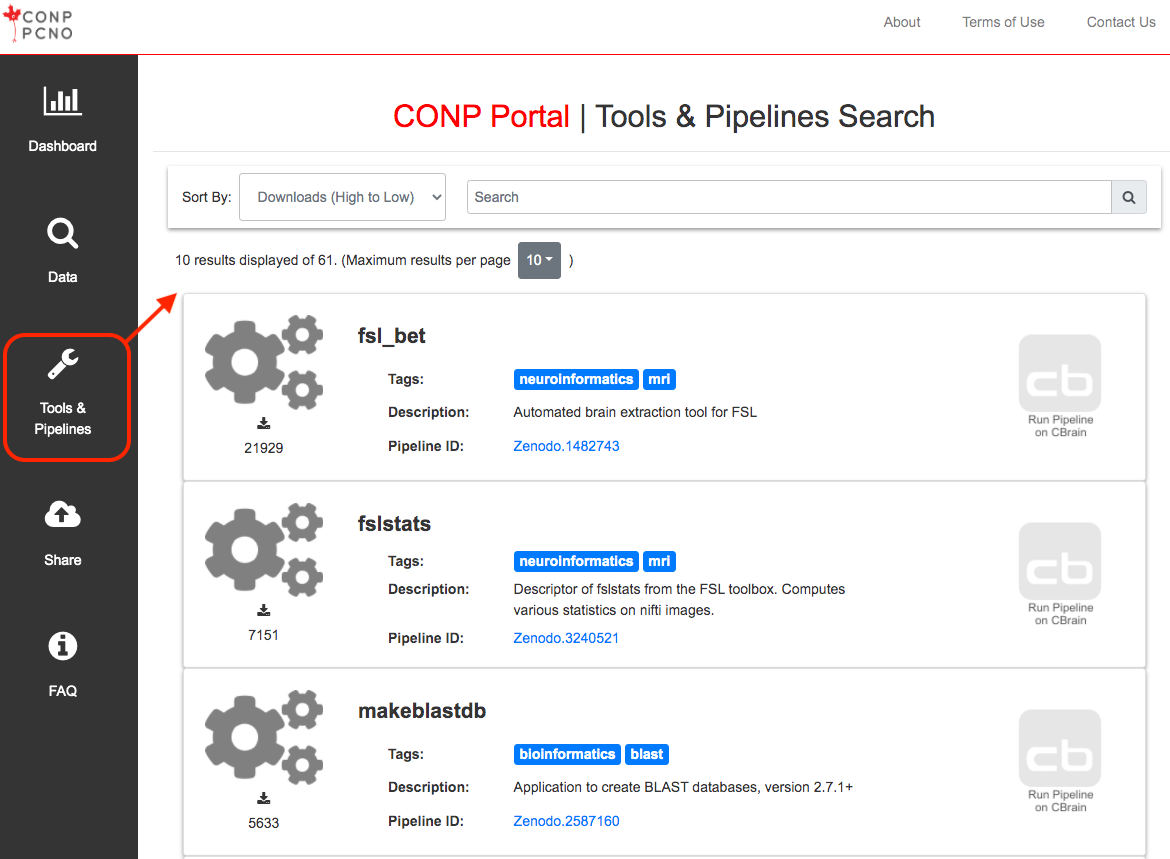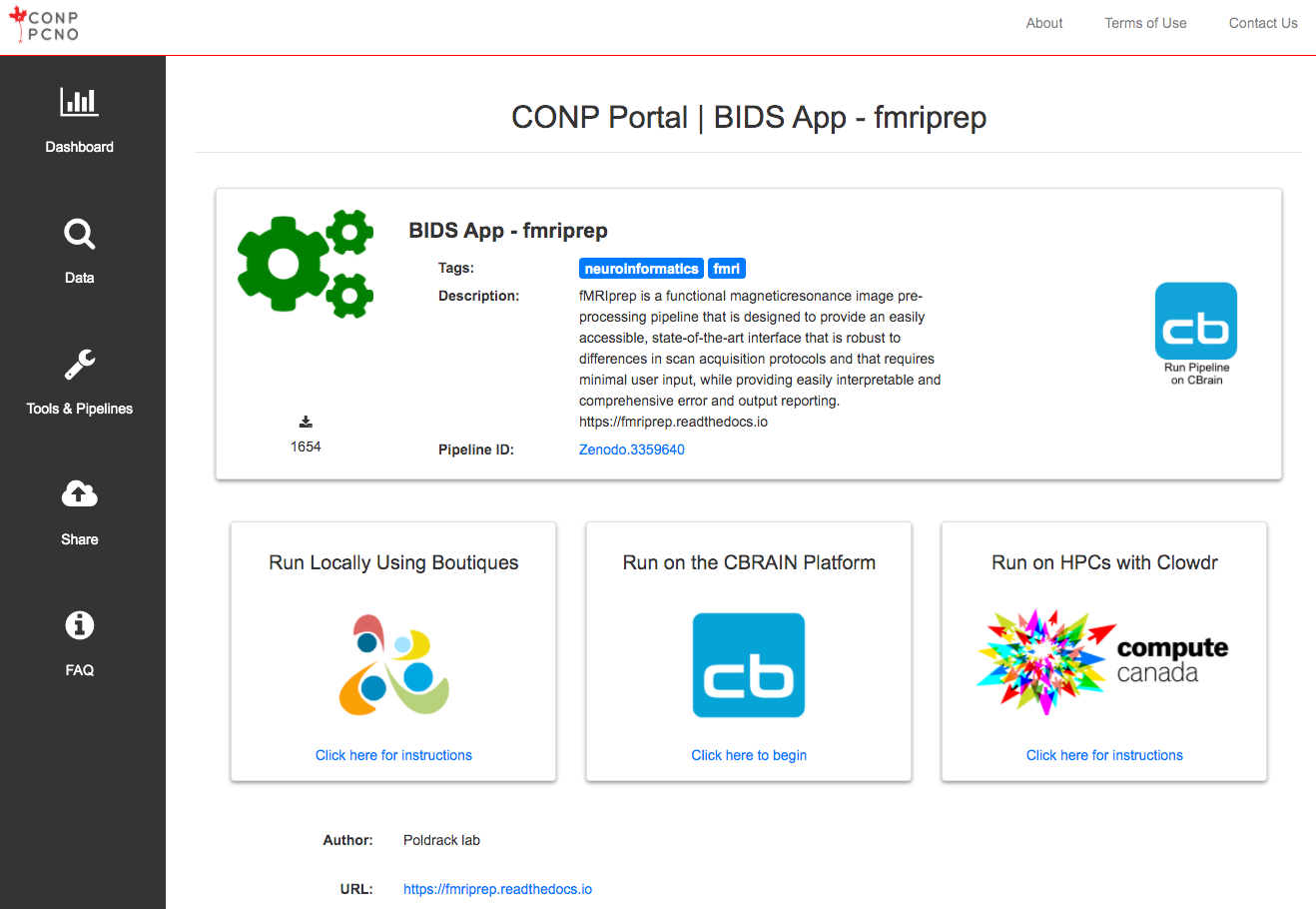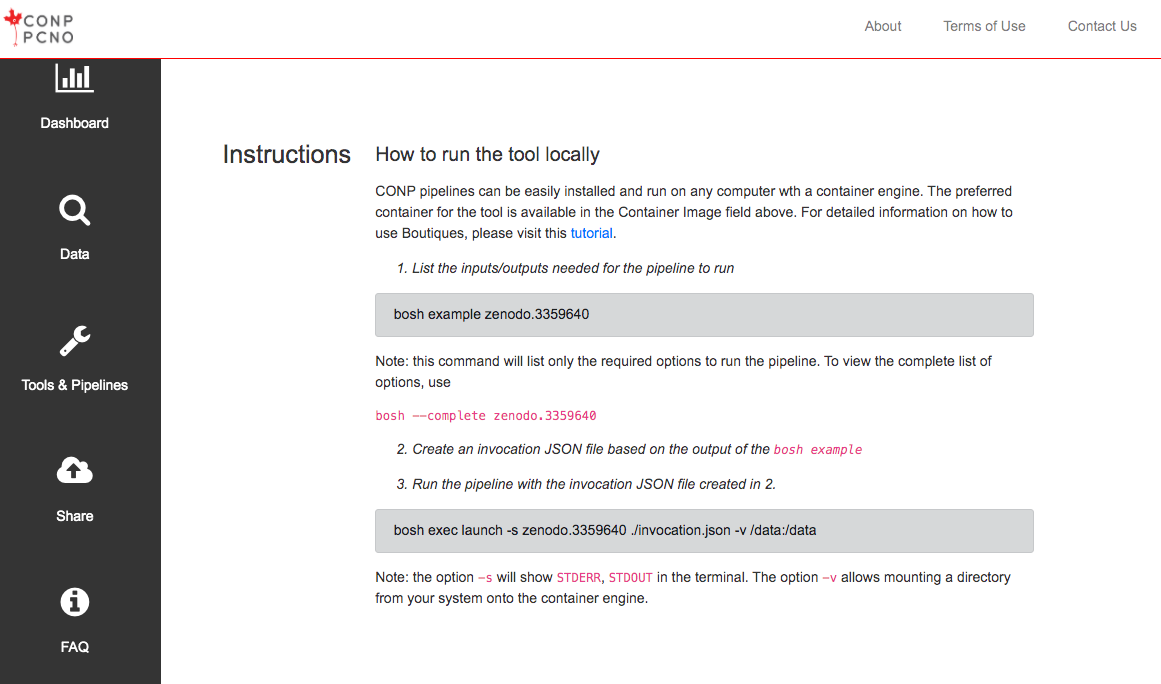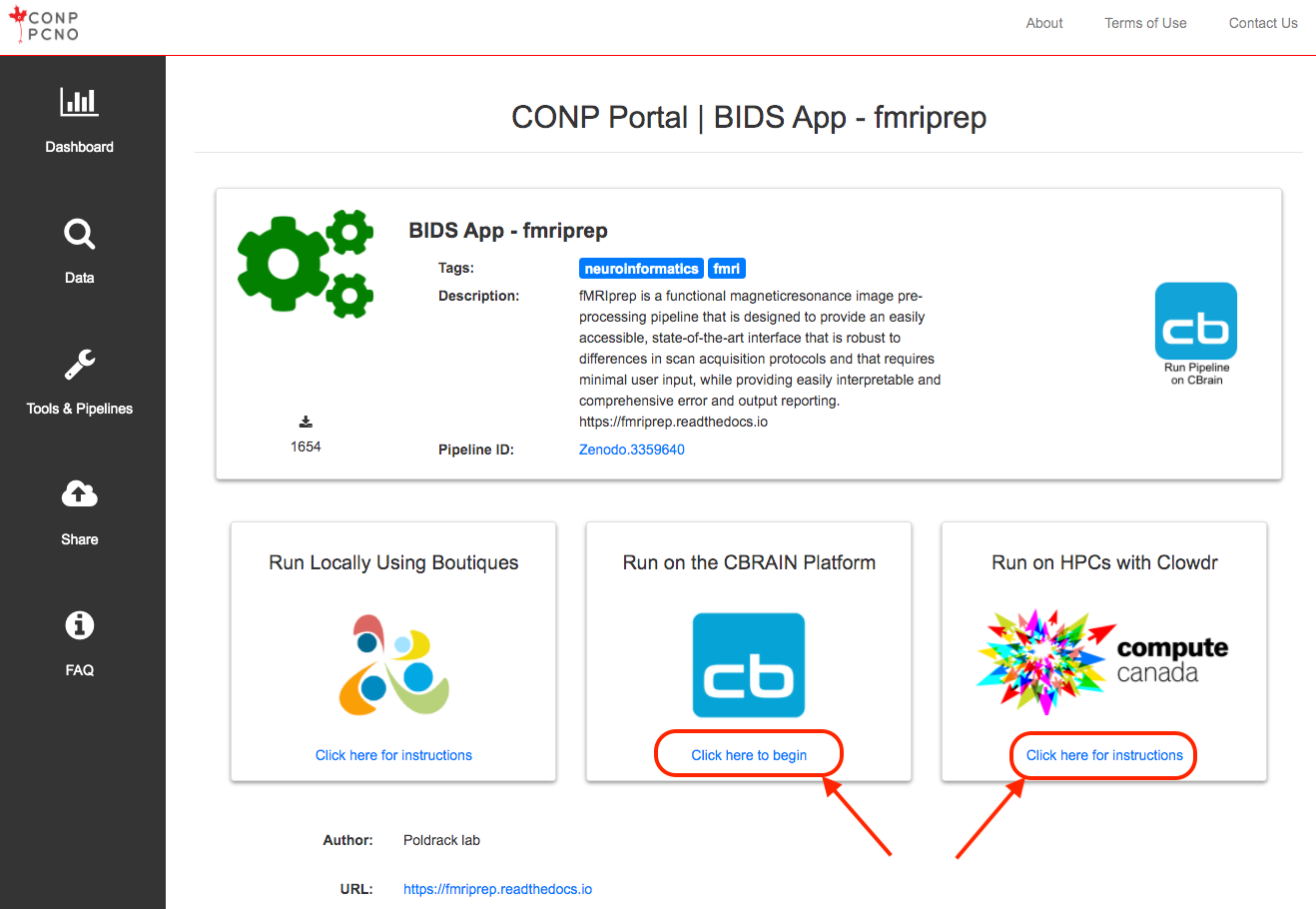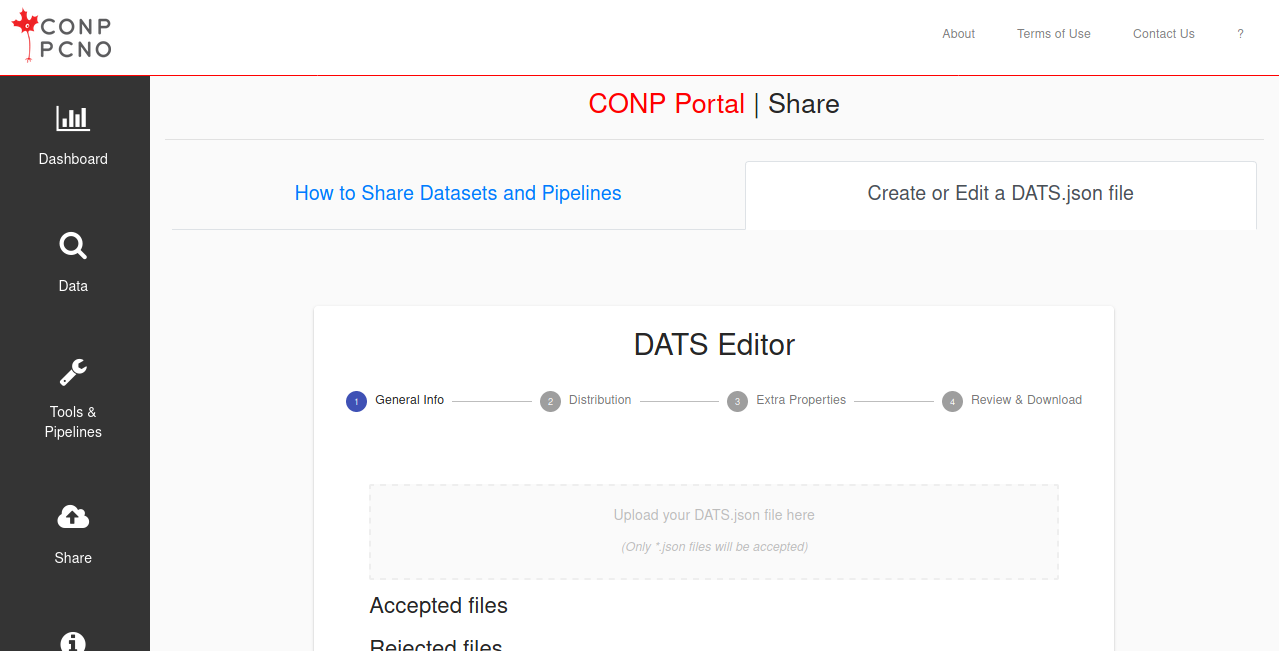(Last Updated on January 20, 2021)
This Privacy Policy governs the collection, use, and disclosure of
information generated during your visit to the Canadian Open
Neuroscience Platform (CONP) Portal. The Portal is hosted by the
McGill Centre for Integrative Neuroscience (MCIN), a unit within
McGill University.
This Policy is separate from the Portal’s Terms of Use, Data
Contributor Agreement, or other CONP-related materials.
Definitions
For the purposes of this Policy:
“aggregate-level data” refers to data that has been grouped together
to provide information at a broader level than the initial
record-level data. This data does not allow for the identification
of individual records. (Adopted from definitions by
Statistics Canada
, the
Canadian Institute for Health Information
, and the
Organisation for Economic Co-operation and Development
.)
“asset” refers to either a dataset, tool, or pipeline available
through the CONP Portal.
“CONP” refers to the Canadian Open Neuroscience Platform.
“cookie” is a small electronic file temporarily stored on your
computer that contains information about your visit to a website.
“external website” refers to any website other than that accessible
at
https://portal.conp.ca/.
“MCIN” refers to the McGill Centre for Integrative Neuroscience,
which runs the CONP Portal.
“personal information” refers to individually identifying
information for which there is a reasonable likelihood of
identification.
“Portal” refers to the web interface for the CONP Portal, which is
accessible at
https://portal.conp.ca/
.
“public IP address” means a unique address that publicly identifies
your connection on the Internet.
“Terms of Use” refers to the user agreement that governs your use of
the resources available on the CONP portal. It is distinct from this
Policy.
Consent Statement
By visiting the Portal, you agree to the terms of this Policy. By
your use of the Portal, you consent to the collection, use, and
disclosure of your personal information in accordance with the terms
contained in this Policy, which may be amended from time to time.
You understand that it is your responsibility to verify any updates
to this Policy.
Collection of Personal Information
Information about Your Visits
CONP uses the software
Matomo
to gather information about your visits. Thanks to Matomo, this
information does not leave CONP servers, allowing CONP to maintain
control of this data. When you visit and use the Portal, our server
automatically collects certain technical information pertaining to
your visit and use of the Portal. These include:
-
your public IP address and its approximate geolocation
-
the domain name from which you visited the Portal
-
user-specific information on which pages are visited
- aggregate information on pages visited
- the date and time of visit
- asset accessed on the Portal
We use this information to improve the Portal and for reporting
purposes. We do not combine this information with that from other
sources to identify individual users. This technical information is
retained for up to 12 months before being aggregated.
User-Submitted Survey Information
CONP uses Google Forms to survey Portal users about their experiences
using the Portal. This information is not automatically collected and
any user information submitted via the Google Form is entirely of the
user’s choosing.
Where a Portal user chooses to submit feedback via Google Forms, the
information is subject to Google’s own Privacy Policy. See also the
section “Links to External Websites” below.
Information Sharing
CONP publishes aggregate-level data about the use of the Portal both
on the Portal website and in reports related to CONP’s activities.
CONP does not share any personal information with other entities or
organizations, except when legally required to do so, at the request
of governmental authorities conducting an investigation, to verify
or enforce compliance with the policies governing the Portal and
applicable laws, or to protect against misuse or unauthorized use of
the Portal.
Except as described above, we will not share any information with
any party for any reason.
Cookies
We use cookies to:
- Identify your visit to the Portal
- Record your acceptance of the Terms of Use
As acceptance of the Terms of Use is a prerequisite to accessing the
site, it is not possible to block this cookie and maintain site
access.
Disclosure of Personal Information
In so far as the information collected is considered personal
information, and within the custody of MCIN, it will not be
shared with individuals and units
outside of MCIN. We will not disclose personally identifiable
information about your use of the site except under the following
circumstances:
- With your prior explicit consent
-
When we have given you clear notice that we will disclose
information that you voluntarily provide
-
With appropriate external parties, such as law enforcement
agencies, in order to investigate and respond to suspected
violations of law or university policy. Any such disclosures shall
comply with all applicable laws and institutional policies. Only
that information which is necessary for compliance purposes will
be disclosed.
Security
Due to the rapidly evolving nature of information technologies, no
transmission of information over the Internet can be guaranteed to
be completely secure. While CONP is committed to protecting user
privacy, CONP cannot guarantee the security of any information users
transmit to university sites, and users do so at their own risk.
MCIN staff, who run the CONP Portal, are subject to McGill
University’s
Policy on the Responsible Use of McGill Information Technology
Resources
. Pursuant to this policy, we have appropriate organizational and
technical security measures in place in our physical facilities to
protect against the loss, misuse, or alteration of information that
we have collected from you at our site. We furthermore use
reasonable safeguards consistent with prevailing industry standards
and proportionate to the sensitivity of the data being stored to
maintain the security of that information on our systems.
Links to External Websites
The Portal contains links to external websites. CONP is not
responsible for the availability, content, or privacy practices of
external websites. These external websites have their own policies
as it relates to the collection, use, and disclosure of personal
information. We invite you to consult the privacy policies of these
websites to know more.
Privacy Notice Changes
From time to time, we may use visitor information for new,
unanticipated uses not previously disclosed in this Privacy Policy.
In such cases, this Privacy Policy will be updated accordingly. If
this is a concern, we encourage you to periodically check for
changes.
Questions about this Policy
Should you have any questions or concerns about this Privacy Policy,
kindly send us an email at
privacy@conp.ca
.
